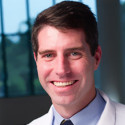Every specialty in medicine has their giants. The men and women, past or present that are considered the leaders, the builders, the Jedi masters of our profession. Some of these great individuals we may be lucky enough to interact with personally, some we may just hear speak at a meeting, some have passed and are part of the history and lore of our profession. Now that I’m more than a decade past my training and I’ve accumulated a few gray hairs from surgery, I’ve started wondering: What makes these legends so legendary? And is that legendary status justified and warranted?
Is it because they are chairs of high-profile departments? Is it because they’ve accumulated large amounts of research dollars? Is it because of promotion through national organizations? Is it because of surgical ingenuity and development of cutting-edge technique or technology? Should any of those things I just listed even be considered when we’re looking for examples of greatness in our profession?
I would bet we all have examples of working with powerful, well-known chairs and professors that are revered and respected among our colleagues, but we would never send our family member to for care. I’ve seen resumes of physicians applying for academic promotion that were 100 pages long with 300 publications who had the bedside manner of a trash can. I’ve known surgeons that have worked with the industry and developed surgical equipment that has become standard kit in every OR, and their patients constantly complain they’ve never met or been seen by this doctor before surgery. I’ve seen a world-famous researcher and clinician be fired for demeaning treatment of staff.
Sometimes the reputations of physicians we elevate as “superstar” are completely justified: true pioneers that cause paradigm shifts in how we understand a disease or treat our patients; or physicians that dedicate their careers to research and scientific advancement. These people are an indispensable facet of a very complicated medical machine. It’s important to recognize these professionals and give them the respect they deserve for their contributions. In addition, every specialty in medicine needs a leadership structure to guide the standards of care and maintain a structure of excellence in training and education. We all owe a debt to these physicians that choose to lead and administer our specialties. But when we’re looking around for mentors, examples in our profession that we should use to mold and guide how we conduct ourselves as professionals, we shouldn’t only look to the legends and celebrated leaders.
These legends can’t teach me how to tell a spouse of an accident victim there’s nothing we can do to help. They can’t teach me how to recruit and build a small team in the OR that works well together and respects each other. They can’t teach me how to balance my demands at work with the challenge of being a husband and father. They can’t guide me through how to deal with a bad behaving colleague.
What about physicians that aren’t chairs at big universities? Physicians that haven’t authored 20 textbooks? What about physicians that just go about their day, using the best techniques available, maximizing their resources, maintaining unquestioned ethics, using the best evidence-based decision-making, and building a reputation of good clinical outcomes and high patient satisfaction? Shouldn’t we be looking for these standard bearers in our profession and elevating them as icons?
The truth is, most of us are surrounded by examples of excellence in our own medical communities. Physicians that were trained well. Colleagues that put their patients first and their ambition and business second. Doctors who have invested in their continued education to ensure they have good outcomes, who have fought for their patients and for the resources needed to care for them. Physicians that have worked just as hard at their home life as their professional life.
While developing a relationship with a specific mentor is important during our residency, when we graduate from training, we are an amalgamation of traits, skills, attitudes, and behaviors pulled from a community of mentors. Whether the physician is a national leader in your specialty, a bench scientist with minimal patient contact, or a quiet patient-focused clinician, they all are demonstrating different paths to professional excellence. In my residency program I was blessed to be exposed to a group of surgeons that all demonstrated excellence in their own unique and special way. I feel I was able to distill a little bit of each of them and add it to my own recipe for professional excellence.
And while usually a mentor is considered a positive role model and influence, there is certainly much to be learned from a negative mentor — someone who runs their professional life in a less than efficient or perfect way with exhibitions of bad behaviors. Witnessing the consequences of these choices can have a tremendously positive influence in shaping us as we mature in our careers.
The standard we should be reinforcing among students and residents should be based on clinical, ethical, patient-centered, outcome-based professional excellence first. Greatness in our profession is not necessarily measured by academic appointments, number of publications, position in national associations, or how many dollars we generate through research or RVUs. When we retire, we will all leave a different legacy. For some of us, our legacy may be a meaningful research advancement. For others, it may be advancing the status and reputation of an academic department. For most of us, our legacy will be nothing more than our patients.
Mentors are everywhere. Don’t just look up into the distance at the ones that have been elevated to the top of the mountain as icons of your specialty. Look to your left and right. And at times even below you. Look closer. Look inside your community. Look inside your own hospital.
Who is someone you work with that you consider a mentor? Shout them out in the comments.
Dr. Gruber is a neurosurgeon in Paducah, KY. His clinical interests include brain tumor management and robotic spine surgery. Find him on Twitter @DrThomasGruber and LinkedIn. Dr. Gruber was a 2022–2023 Doximity Op-Med Fellow.
Illustration by Diana Connolly







